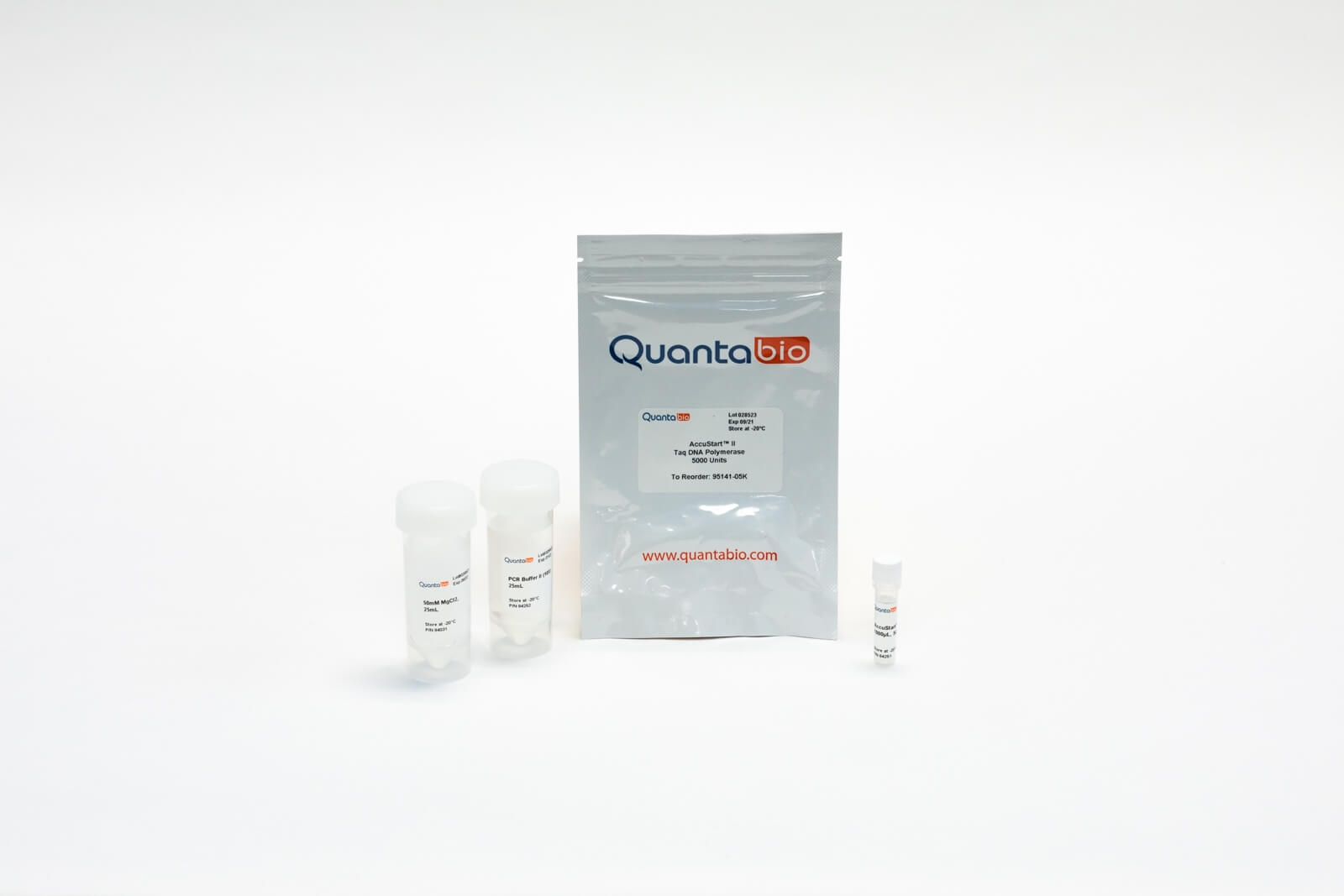
AccuStart II Taq DNA Polymerase
- High-yielding, ultrapure modified Taq DNA polymerase delivers robust, reliable assay sensitivity
- Stringent, ultrapure antibody hotstart enables precise target amplification and ambient room temperature setup
AccuStart II Taq DNA Polymerase is intended for molecular biology applications. This product is not intended for the diagnosis, prevention or treatment of a disease.
AccuStart II Taq DNA Polymerase
Description
AccuStart II Taq DNA Polymerase is a high purity, recombinant Taq DNA polymerase preparation with high avidity monoclonal antibodies that bind the polymerase and keep it inactive prior to the initial PCR denaturation step. Upon heat activation (1 minute at 94ºC), the antibodies denature irreversibly, releasing fully active, unmodified Taq DNA polymerase. This enables specific and efficient primer extension with the convenience of room temperature reaction assembly. Non-specific extension of primers at low temperatures is a common cause of artifacts and poor sensitivity in PCR. The AccuStart II automatic hot-start enables specific and efficient primer extension in the PCR process with the added convenience of room temperature reaction assembly. The included 10X PCR Buffer II is optimized for higher yields, improved specificity, and enhanced multiplexing capability.
Activated AccuStart II Taq DNA polymerase possesses 5'->3' DNA polymerase activity and a double-strand specific 5'->3' exonuclease. The polymerase does not have 3'-exonuclease activity and is free of any contaminating endo or exonuclease activities.
One unit is defined as the amount of enzyme that will incorporate 10 nmol of dNTP into acid-insoluble material in 30 minutes at 74°C. AccuStart II Taq DNA polymerase contains extremely low levels of residual host, E. coli genomic DNA.
Details
- AccuStart II Taq DNA polymerase 5 units/μL in 50% glycerol, 20 mM Tris-HCl, 40 mM NaCl, 0.1 mM EDTA, and stabilizers.
- 10X PCR Buffer II
- 50 mM MgCl2
Resources
Product Manuals
CofA (PSFs)
SDSs
Publications
Customer Product Reviews
 AccuStart II Taq DNA Polymerase
AccuStart II Taq DNA Polymerase

There are no reviews yet